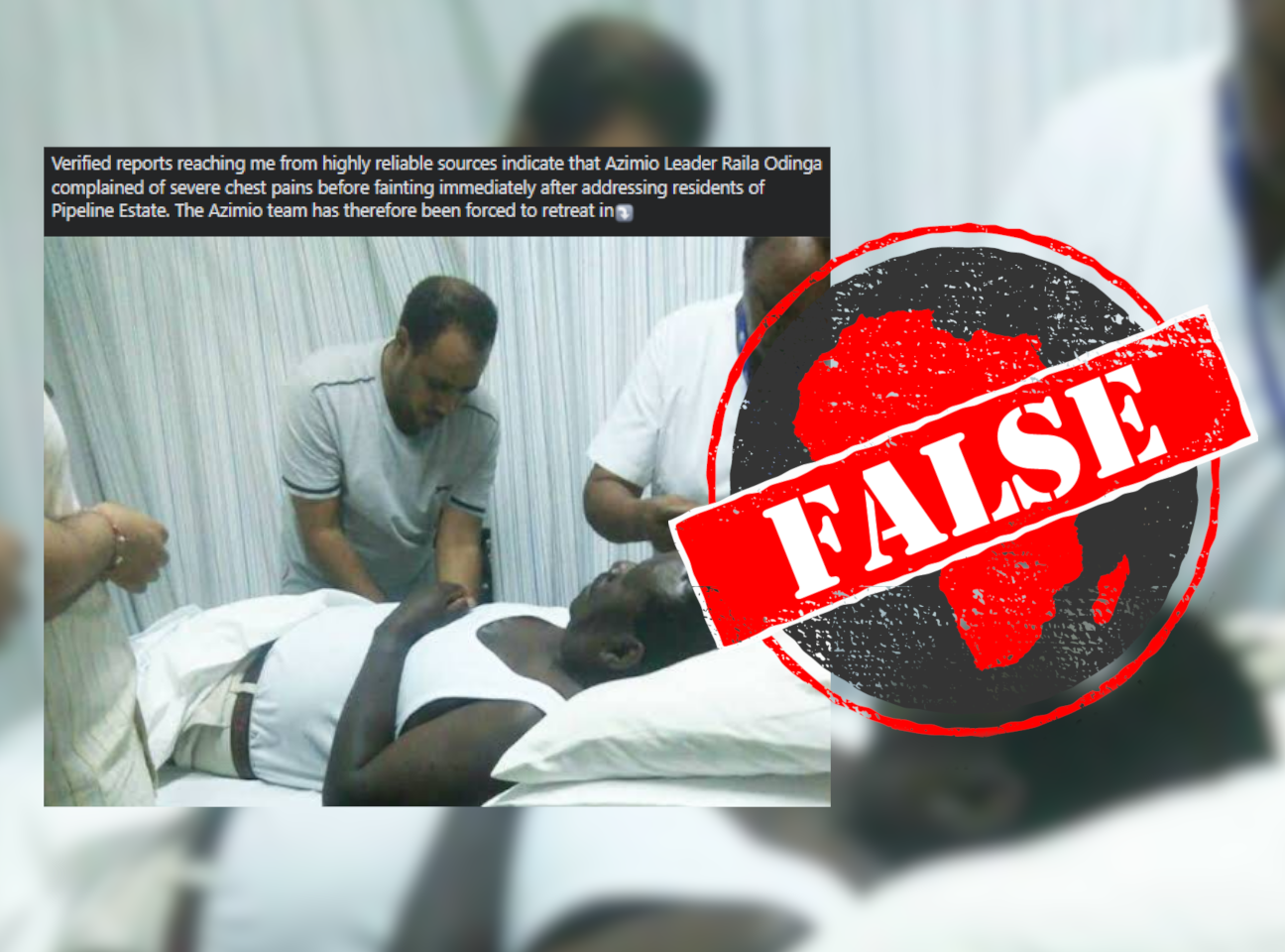IN SHORT: Protests by Kenya's opposition in March 2023 disrupted life in the capital Nairobi and elsewhere. However, a photograph of Odinga, claiming to show him in hospital, was taken in 2017.
A photo of Kenyan opposition leader Raila Odinga lying on a hospital bed while medics attend to him has been posted on Facebook.
The caption claims the photo shows Odinga in hospital after falling ill during a public address at Pipeline, a densely populated estate in Nairobi county.
The caption reads: “Verified reports reaching me from highly reliable sources indicate that Azimio Leader Raila Odinga complained of severe chest pains before fainting immediately after addressing residents of Pipeline Estate. The Azimio team has therefore been forced to retreat in.”
On 30 March 2023, Odinga led a protest in Pipeline against the high cost of living in Kenya. Some of his other grievances were impending electoral reforms for the 2027 general election and alleged electoral fraud in the 9 August 2022 election.
But Odinga's convoy was tear-gassed by police, forcing it to reroute the march.
Did the opposition leader fall ill during the protest? We checked.

Photo taken in 2017
None of the videos taken that day show Odinga fainting. Such news would be widely reported, but there's no record of it.
A Google reverse image search of the photo revealed that this photo appeared online on 9 July 2017.
It shows Odinga in hospital in Mombasa after a rally in the coastal county of Kilifi. He was hospitalised with suspected food poisoning, according to news reports.
The photo is being used out of context in 2023.
Republish our content for free
For publishers: what to do if your post is rated false
A fact-checker has rated your Facebook or Instagram post as “false”, “altered”, “partly false” or “missing context”. This could have serious consequences. What do you do?
Click on our guide for the steps you should follow.
Publishers guideAfrica Check teams up with Facebook
Africa Check is a partner in Meta's third-party fact-checking programme to help stop the spread of false information on social media.
The content we rate as “false” will be downgraded on Facebook and Instagram. This means fewer people will see it.
You can also help identify false information on Facebook. This guide explains how.


Add new comment